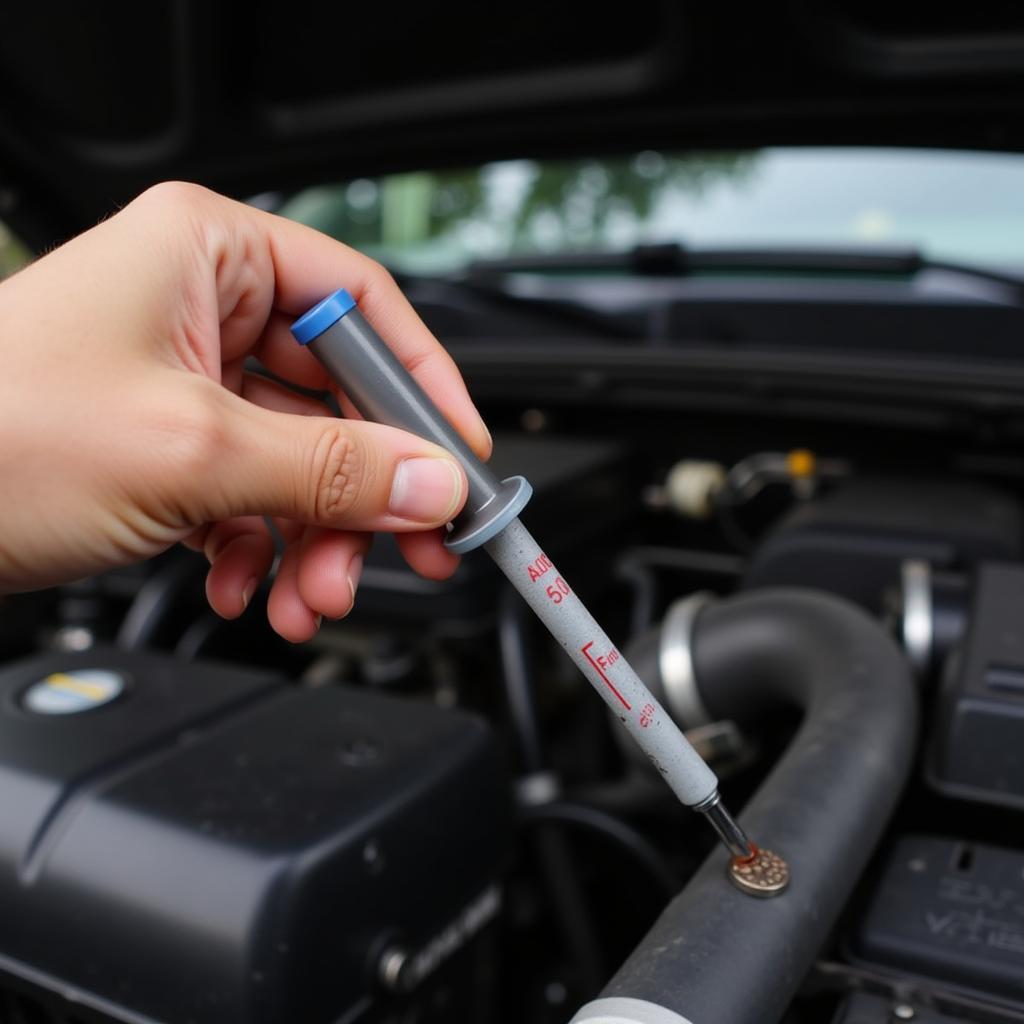Hitting the 100,000-mile mark on your car is a significant milestone. It also signals the need for a more proactive car maintenance schedule after 100,000 miles to keep your vehicle running smoothly and avoid costly repairs down the road. Ignoring essential maintenance can lead to premature wear and tear, decreased fuel efficiency, and potentially dangerous driving conditions.
Keeping your vehicle in tip-top shape requires a solid understanding of what needs attention after this milestone. Here at Autotippro, we understand the importance of a proper car maintenance schedule after 100,000 miles. Let’s dive into the key areas you should focus on to ensure your car continues to perform reliably. Knowing how much is the budget cost for a car maintenance can help you plan ahead.
Essential Car Maintenance After 100,000 Miles
Reaching this mileage signifies that certain components have endured considerable wear and tear. This is where a proactive maintenance approach comes into play.
Timing Belt Replacement
The timing belt is crucial for engine operation. Failure can lead to catastrophic engine damage. Most manufacturers recommend replacement between 60,000 and 100,000 miles, so if you haven’t replaced it yet, now’s the time.
- Check your owner’s manual: Verify the recommended replacement interval for your specific make and model.
- Don’t delay: A broken timing belt can result in extensive and expensive engine repairs.
Spark Plugs
Worn spark plugs can reduce fuel efficiency and engine performance. While many modern spark plugs are designed for longer life, it’s good practice to have them checked and replaced if necessary at this mileage marker. It’s a great way to save money car maintenance in the long run.
- Choose the right plugs: Use the type recommended by your manufacturer for optimal performance.
- Regular checks: Inspect spark plugs regularly for wear and tear.
Fluids: The Lifeblood of Your Car
Regular fluid changes are vital for all vehicles, especially after 100,000 miles. This includes engine oil, transmission fluid, coolant, brake fluid, and power steering fluid. Keeping these fluids fresh helps maintain optimal performance and prevents damage to vital components.
- Engine Oil: Frequent oil changes are crucial. Consider switching to a high-mileage oil formulated for older engines.
- Transmission Fluid: Changing the transmission fluid can extend the life of your transmission.
- Coolant: Ensure the coolant is fresh and the cooling system is functioning correctly to prevent overheating.
- Brake Fluid: Flush and replace brake fluid to maintain optimal braking performance.
- Power Steering Fluid: Low power steering fluid can lead to difficulty steering and potential damage to the power steering pump.
“Regular fluid maintenance is like giving your car a vitamin boost. It keeps everything running smoothly and prevents costly problems down the line,” advises John Miller, a seasoned automotive technician with over 20 years of experience.
 Checking Car Fluids During Maintenance
Checking Car Fluids During Maintenance
Suspension and Steering Components
As your car ages, suspension and steering components can wear out, affecting handling and ride comfort. Have a mechanic inspect these components, including shocks, struts, ball joints, and tie rod ends, for wear and tear. Knowing what are major maintenance mileage for cars will help you stay on top of these important checks.
- Signs of wear: Look for signs of wear like unusual noises, vibrations, or uneven tire wear.
- Professional inspection: A mechanic can identify potential issues before they become major problems.
Brakes
Your braking system is critical for safety. Have your brakes inspected regularly, especially after reaching 100,000 miles. This includes checking brake pads, rotors, and calipers.
- Brake pad replacement: Worn brake pads can reduce braking effectiveness.
- Rotor resurfacing or replacement: Worn rotors can also compromise braking performance.
Conclusion
Following a diligent car maintenance schedule after 100,000 miles is crucial for extending your vehicle’s lifespan and ensuring safe and reliable operation. By addressing these key areas, you can prevent costly repairs and keep your car on the road for years to come. Need assistance? Connect with us at AutoTipPro for expert advice. Our phone number is +1 (641) 206-8880 and our office is located at 500 N St Mary’s St, San Antonio, TX 78205, United States. We’re here to help you keep your car running smoothly. Even if you have a specialized car, like a BRZ, we can offer tailored advice on car maintenance brz. If your car is older, understanding car maintenance manual years years passed can be helpful too.






Leave a Reply